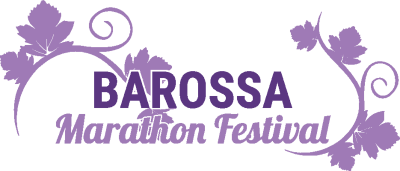| Easy Run | Run at a comfortable pace that allows you to maintain a conversation with someone else. |
| Hill Repeats | Find a hill around 400m steep enough to be challenging, e.g. Montefiorehill/Brougham Place, that you can still maintain good running form to the top. After a warm up period of around 10-15mins/2-3kms maintain a constant pace up the hill & recover back down & repeat. Start with 2-3 reps and aim to increase the reps to a total of 8-10 in subsequent attempts. Cool down for 10mins/2km |
| Long Run | Pace around 1 min/km slower than race day pace |
| Half Marathon Race Pace | The pace you aim to run on race day |
| Tempo Run | A run at close to your 10km pace for half marathon’ers &marathon’ers A run at close to your 5km pace for 10km’ers Some run strategies you can incorporate to improve your tempo runs are (following a 1-2km warm up):
|
| Speed Intervals |
On intervals aim for less than 5km pace or quicker than your marathon pace for those running longer. Some examples: 200m hard/200m easy/400m Hard/400m easy/800m Hard/800m |
| Strength & Conditioning (S&C) | Gym session, refer to SARRC website for ideas |
| Cross Training (XT) | Non running day try swimming, cycling or walking |
| Rest & Recovery | Non running day have a massage, attend a yoga or Pilates class or dedicated stretching time |
| Fartlek |
Swedish word for speed play involves placing periodic surges into the run. After a warm up period of 5-10mins/1-2kms accelerate your pace for a
period of time (1-3 mins) or distance (100m-800m), then slow back down to an easy steady pace & repeat when fully recovered. Unlike Speed |
| Mona Fartlek | Australian word for Steve Moneghetti's Fartlek session, consisting of fixed times for your hard running and recovery running as follows; 2 x 90 secs hard/easy; 4 x 60 secs, 4 x 30 secs, 4 x 15 secs. Total time = 20.00mins. (Don’t forget to warm up for 5 mins first & cool down for 5 mins after) |
General advice:
- There is only one you. How you feel while running, your pace, your recovery is all unique to you. So listen to what your body is telling you, not to anyone else.
- If you feel a sharp pain while running, stop and walk, stand still or sit down. Give yourself a check-up.
- Stretch it out, walk it off or call it a day. Don't run through injury or sickness. Running is hard enough when healthy, and long breaks due to serious injury or illness are usually preventable.
- Get into a routine if possible, as the body loves regularity when it comes to exercise.
- Never get down about not feeling like you aren't getting fitter or it's not getting easier, be patient and stick to the plan, because before you know it you will be reaching that finish line!
- Slow down your running pace if you have trouble breathing. Start off slow, finish strong. Smell the roses.
- Avoid sports drinks and consuming too many gels and bars. Eat a well balanced diet of fresh veggies and fruits and drink at least 2 litres of water a day when marathon training during summer.
- Drink water every 15- 20 mins during your long runs in summer too if possible.
- Practice your race day nutrition prior to race day to ensure your body can handle it.
Any further questions please email

